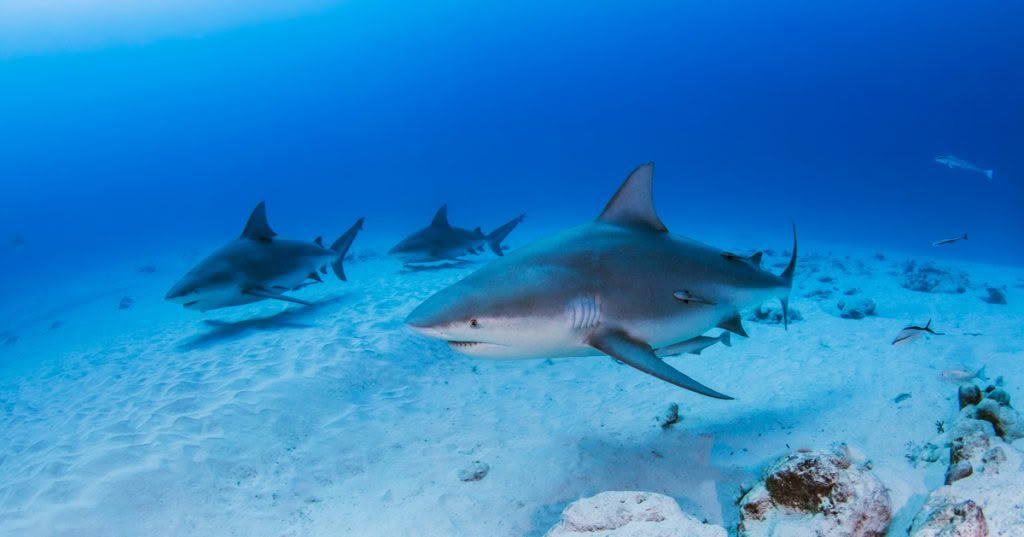Some-fin good happening in paradise
Two remote islands in Fiji’s Yasawa group show measurable benefits from harnessing tourism’s economic power to restore a vulnerable marine environment and support an equally vulnerable local population.
Words Kate Coughlan
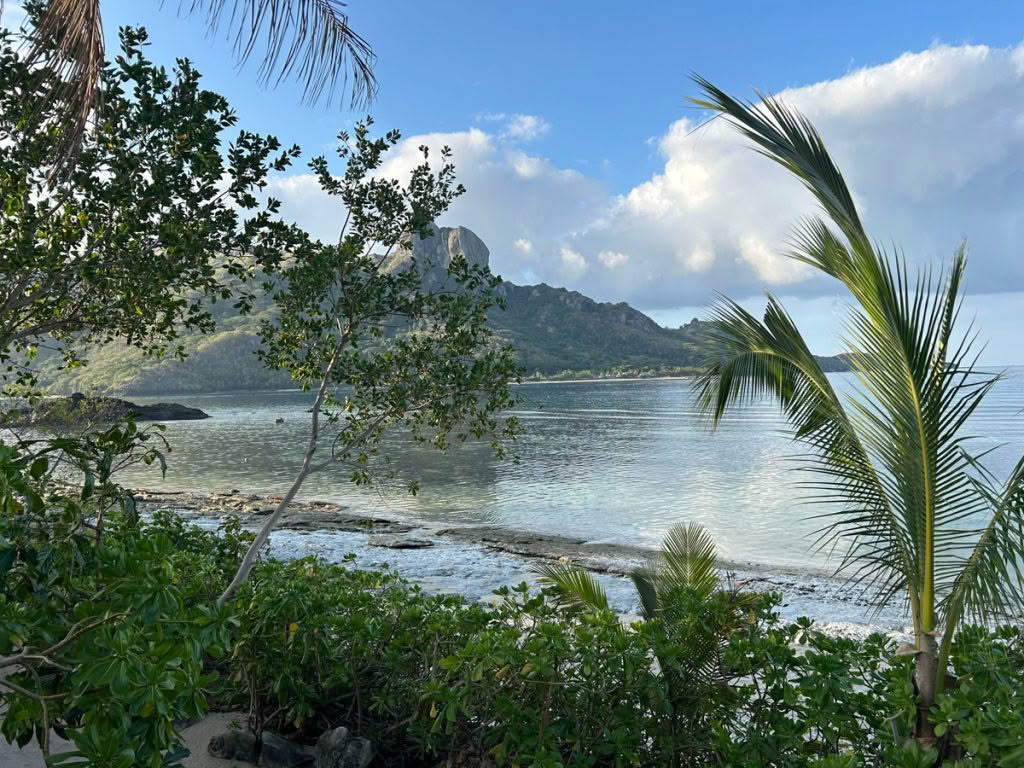
The beautiful coral reefs surrounding the remote Yasawa Islands of Kuata and Manta in Fiji mirror the challenges facing the island people themselves. What has been in kilter for centuries is now out of kilter both on land and in the sea. Increasing populations and changing habits threaten traditional life and sometimes even life itself.
On land, customary village ways are upended when economic challenges require young people to leave for the mainland. The surrounding coral reefs are equally challenged by overfishing of herbivorous fish, particularly parrotfish, surgeonfish and rabbitfish, allowing algae to proliferate unchecked. Without these fish grazing the algae it can completely dominate, starving of oxygen the millions of tiny creatures that form the coral. Shark fishing exacerbates this problem. Without these apex predators, meso predators (a level between sharks and herbivores) increase in numbers and over-predate on the herbivores.
Entrepreneurial tourism operators Gareth van Eyssen and Peter Farrell run two small resorts on these islands committed to meaningful measures of success in conservation, community and business. ‘We have a story to tell. And it’s a story of hope and optimism,’ says Peter, who also runs Reef Safari in Airlie Beach near Australia’s Great Barrier Reef.
The Barefoot Collection of resorts host resident guests in charming canvas-sided safari-style tent accommodation and welcome day-trippers from Nadi (2.5 hours by ferry) twice daily, seven days a week. The magnificent coral reefs are a drawcard for snorkelling and diving. Guests can enjoy gentle snorkel adventures in front of the resort, offshore snorkelling with black-tipped reef sharks and, for the bravest visitors, a scuba-dive with bull sharks – among the ocean’s largest sharks.
‘We are a business, a community and a conservation project with all three components in a mutualistic symbiotic relationship,’ says Peter. ‘The business cannot survive without an engaged, supportive community and a healthy natural environment. The community cannot survive without a healthy and prosperous natural environment and is limited in opportunities without a successful business. The natural environment cannot survive without conservation and a sound management plan.’
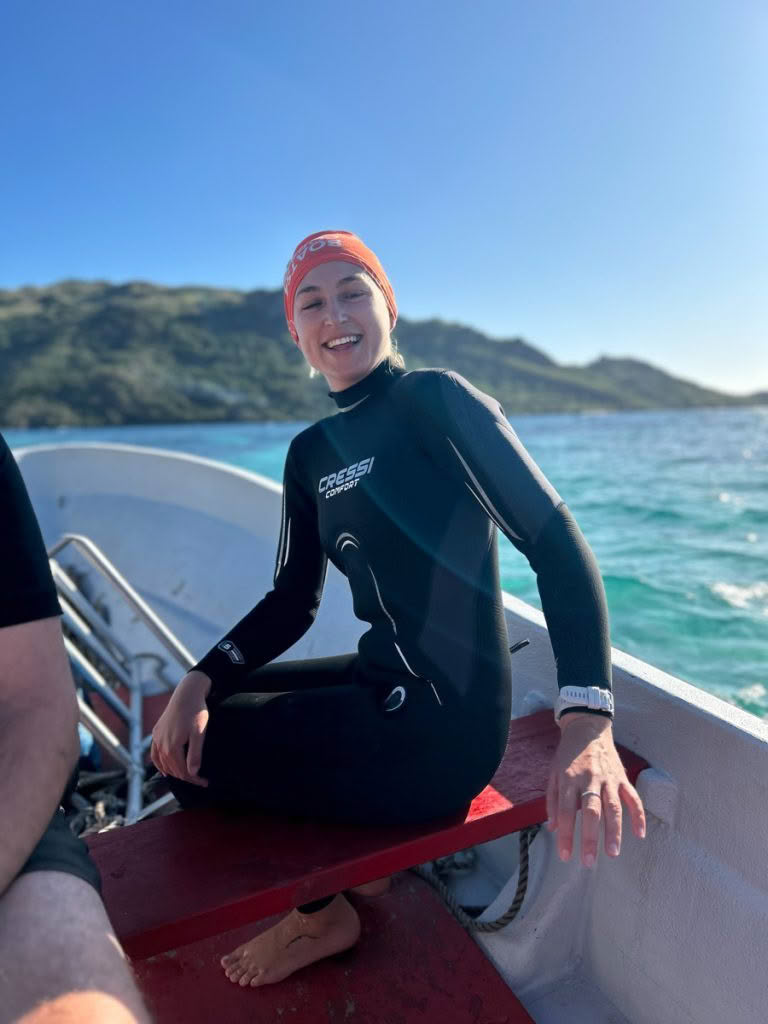
‘Going gently and respectfully into the maze,’ is the way Gareth describes their approach to business. ‘Both of us are from places where there is an incredible amount of trouble over land; Africa in my case and Papua New Guinea in Peter’s.
It was extremely important that when we did a deal here, we did not disenfranchise anybody. The most important thing is land. People live off their land. And this is what is so complicated about marine conservation.’
Peter says for many years the community has relied on the reef as a protein source. ‘Fishing is a way of life. People in the Yasawa Islands fish for two reasons; to feed themselves and to earn money for the other necessities of life. The first can be managed sustainably if the reefs are healthy. The second is more problematic. Without a limit to fishing, it can and will have fatal consequences for a reef system. However, alternative revenue needs to replace fishing income. This is where tourism can be the answer.’
For seven years, the Barefoot Collection has operated on land owned by the local island communities with agreements covering more than a land lease. ‘First of all, the business is committed to employing as many people as possible from the community,’ explains Peter. ‘Some skills to operate the resort need to be outsourced but this is done with a commitment to train local staff. This employment strategy comes with challenges and with huge benefits.
‘Now many members of the community have an income, and the immediate pressure is off the reef. Parents have jobs close to their villages and spend more time with their children rather than having to seek employment on the distant mainland. As a part of the agreement, the community also takes a percentage of the gross income of the resort. This encourages the community to support the business. They are direct beneficiaries of the resort doing well.’
A healthy ecosystem benefits both the business and the community. A beautiful reef attracts guests, enhances guest experiences, and encourages them to learn more about marine conservation, to return for future holidays and to spread the word. ‘As a part of the agreement between the community and the business, a marine-protected area has been set up around the islands,’ says Peter. ‘Marine-protected areas are crucial for healthy reefs and they also improve fishing in areas outside the protected zone. These long-term benefits must also provide immediate economic benefits for the community. Placing immediate monetary value on a protected area is crucial to getting community support. Long-term benefits are of little use to parents needing immediate income to support a family. All the scientific evidence in the world will not change this.’
Education is crucial in the success of this project and the business supports local schools and offers vocational training. Scientists (see sidebar) and resort staff spend time each week teaching marine biology at the local schools and a cash donation per dive goes to the schools for new facilities. Peter and Gareth see these initiatives benefiting both the business and the environment.
‘Building trust takes time,’ continues Peter. ‘The community and the business have some common needs but also some individual needs. Having a trusting and open relationship, and the understanding that neither partner will always get it right is crucial.
‘The environment is reliant on this relationship being strong. The environment is the one leg in this tripod of success that has no say. Right now, it is thriving.’
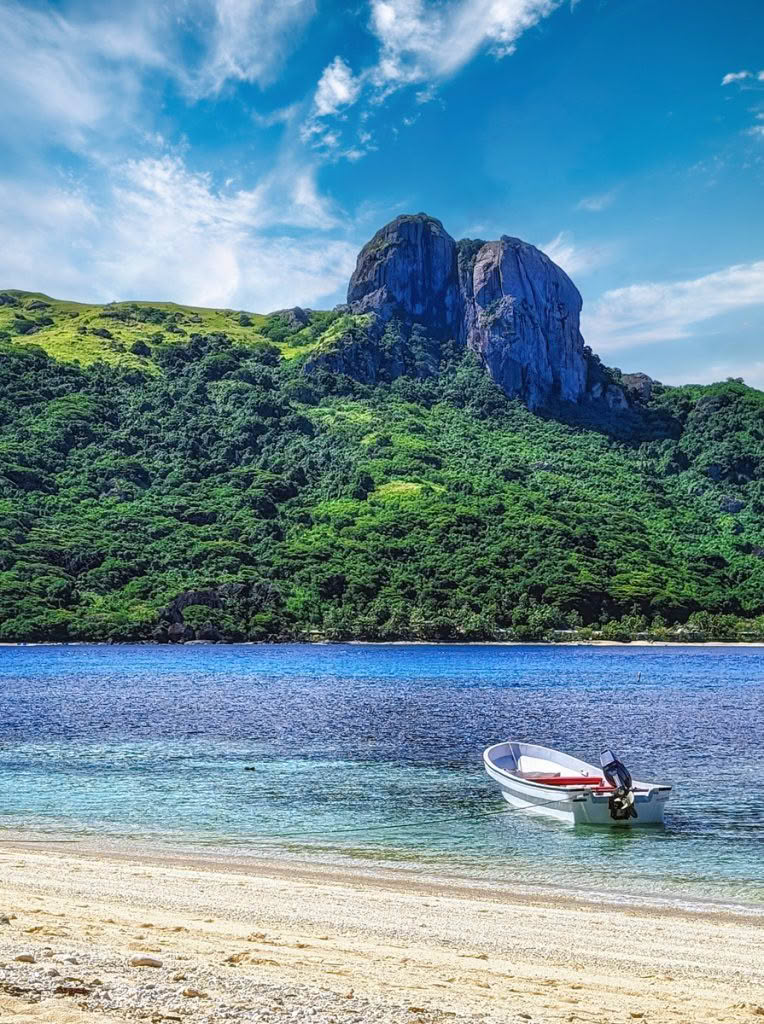
The positive impact on the marine ecosystem is being measured and documented by independent scientists from CRIOBE (a French government-funded Pacific-based research institution). Scientists live full-time at the resort to work on various scientific and educational projects. These include coral seeding and restoration, shark monitoring, tagging and behaviour observation, and educational guest lectures each week.
‘It is very easy for rich westerners to say “don’t catch the fish”, then go home and sit on their big sofas and watch their massive TVs,’ says Gareth. ‘Conservation is a tricky business. When you have a lot of people and limited resources, and you are trying to put nature over humans, you have a very ethically sensitive issue. Westerners have built big cities and they value a rural or a marine environment as a holiday place. When such places start to disappear it is easy to judge the people who have to use them to survive.’
Some of this passionate effort by the resort staff, its owners and the hardworking scientists might go completely unnoticed by the happy holidaymakers having a perfectly blissed-out holiday in a Pacific paradise. However, most visitors do get it and after their awe-inspiring diving experiences, they recognise this resort is a bit different.
‘We don’t need more customers – in our busy season we are doing very well,’ says Gareth. ‘What we want are customers who are into what we are into, and have the right mindset. Customers have got to be good to our staff, that is important to me.’
‘I am a realistic optimist and am very confident that humans will work out how to look after our planet better,’ says Peter. ‘I see humans as the solution, not just the problem and our guests are crucial to the survival of the environment in the Yasawas.’
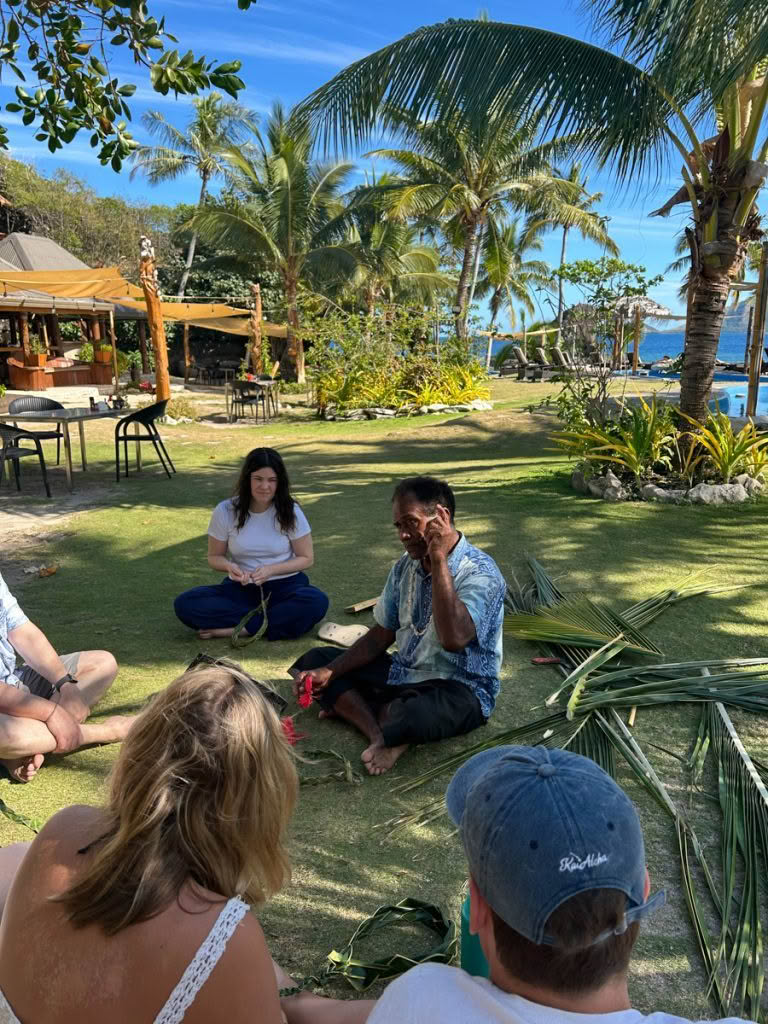
Misunderstood and maligned
Sharks are among the planet’s most threatened species with 81 million killed each year for meat and fins. Sharks have a perilously slow reproduction rate with bull shark females, for which Barefoot Kuata is famous, reproducing only when 15–20 years old and generally every second year. The 10- or 11-month gestation might produce a litter of between 6–8 pups.
Shark scientist Jan Bierwirth, formerly based on Kuata Island working with the resort and France’s premiere Pacific research institution, CRIOBE, says that worldwide shark populations have declined by 31 per cent in the past 50 years.
‘We will lose sharks in the long run if we don’t do something. And that would be catastrophic for the marine ecosystem,’ he says. ‘A change of attitude toward sharks is crucial. People don’t protect what they haven’t seen, what they don’t like.’
Steven Spielberg’s blockbuster movie JAWS was catastrophic for sharks, misrepresenting them as marine marauders lusting after human flesh. By and large, sharks couldn’t care less about humans according to Jan. Statistically he is provably correct: sharks are less of a threat than almost every other thing in the natural and unnatural world. Humans are 10 times more likely to be injured by fireworks than a shark, a surfer is 47 times more likely to be killed by lightning than bitten by a shark, and let’s not get started on the threat to humans from curbs, choking on peanuts, car accidents and MRSA bugs.
‘The shark snorkelling and diving experiences at Barefoot Kuata offer a different perspective with a positive experience creating a memory people can take back home and share. Knowledge is useful and every day we see people returning from a dive with a huge smile on their face. They’ve overcome their fears and recognised the lack of threat from these majestic animals in their natural environment. It is cool that more people are prepared to advocate for these animals.’
While tourists are making memories, Jan and his team of scientists including New Zealanders Jarod Clarke who runs the resort’s shark diving operations and Ellie Milner, a marine biologist also working on education and coral restoration projects, take skin tags from the sharks and observe their behaviour. Will tourists falling in love with apex predators, the enormous and magnificent bull sharks (many of whom Jarod and Ellie know by name) be enough to reverse the decline of shark numbers?
‘There is no bold solution at the moment and we’re not saying that shark tourism is enough, but it might spark another solution, and foster longer-term conservation efforts.’
